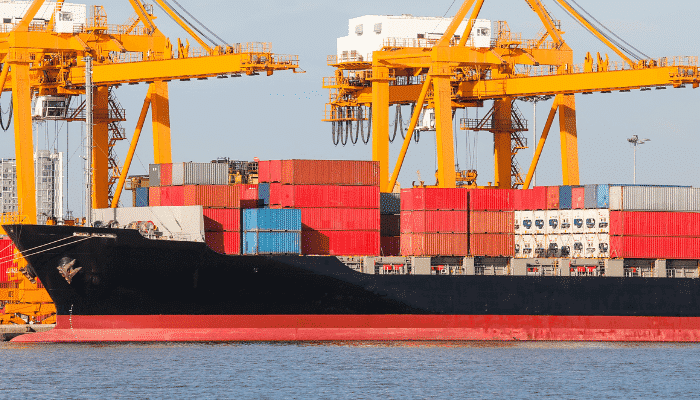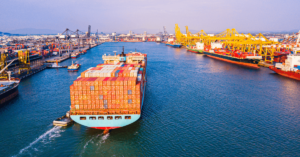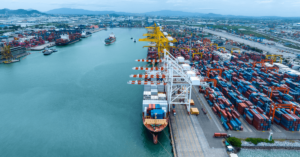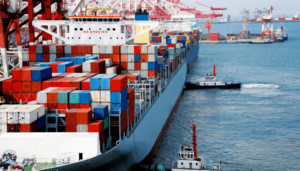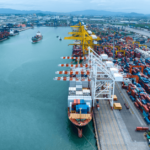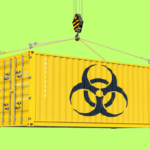Required Documentation For Shipping – Complete List
When cargo is shipped from one location to another, it has to be accompanied by a set of documents authenticating the transfer and the products being transferred. This set of documents are referred to as shipping documents.
Different countries have different requirements as far as shipping documents are concerned. The two main world organizations that frame rules and guide business organizations in this matter are the World Trade Organization (WTO) and the International Chamber of Commerce (ICC).
Most shipping documents are based on the rules and regulations set forth by these world bodies and the governing authorities of the respective countries, such as the chamber of commerce, customs, trade councils, etc.
Roles of the WTO and ICC
The World Trade Organization facilitates trade between nations through negotiations and agreements. The main aim of WTO is to ensure the smooth and free flow of trade between nations. Besides this, they settle disputes between members and also helps developing countries in doing business.
The International Chamber of Commerce is the voice of over 45 million business organizations all over the world. They guide these organizations on the references, rules, and standards to be followed while doing business. As such, the work of ICC is referenced and taken as the guide by arbitrators, lawyers, and bankers especially in the event of disputes between organizations based in different parts of the world.
Let us examine the main shipping documents that are used in doing business. While some countries require documents to be in hard copy, others have moved to the paperless shipping documentation.
The documents that are mentioned here may be common for the different types of transport such as by land, sea, and air. However, here we will focus mainly on shipping documents for the transportation of goods by sea.
Export and Import License
A business organization that has to export or import goods are required to register with the licensing authority in their region. Normally, the licensing authority grants permission to the organization by issuing an Import Export Code (IEC).
This permission is given only after ensuring that the business has met all statutory requirements and is eligible to export or import.
In India, the IEC is issued by the Directorate General of Foreign Trade (DGFT).
Proforma Invoice
A proforma invoice is a preliminary invoice that shows the quantity and description of goods, the total amount to be paid by the buyer, the date when the products or services being sold will be delivered to the buyer, and other important details of the transaction. Any advance paid on the transaction will be based on the proforma invoice. It is also a commitment between the seller and the buyer.
Bill of Lading or Seaway Bill
A bill of lading (BL) is a confirmation issued by the shipping company of having received the cargo from the seller onboard their ship. It is a contract of carriage between the seller and the shipping line.
A BL serves as proof of ownership of the cargo. Typically, a bill of lading is a negotiable instrument. In other words, it can be transferred to a third party with the seller’s consent.
Just like the bill of lading, a seaway bill is also a contract of carriage between the seller and the shipping line. However, it is a non-negotiable contract in which the shipping company undertakes to deliver the goods only to a specific consignee.
A seaway bill cannot be transferred to a third party.
Both the bill of lading and seaway bill are legal documents.
Commercial Invoice
A commercial invoice is a final invoice that is used for customs clearance and other purposes. It should have the complete details of the business transaction between the seller and buyer.
At the least, it should include the name and address of the seller and buyer, the description of the goods being sold, quantity, value, terms of sale and payment, and the country of origin of the goods.
The commercial invoice forms the basis for the payment of customs duty and other taxes.
Packing List
As the name suggests, it is a document that provides details of the packing of the goods being shipped. A packing list will show the description of goods, their individual and collective packing, dimensions, weights, and markings. It may look very similar to the invoice but does not replace either the proforma or the commercial invoice.
A packing list helps the customs, the shipping carrier, and the receiver to easily identify the individual cargo during inspection or receipt.
Insurance Certificate
An insurance certificate or an insurance policy that is taken on the goods being shipped assures coverage in the event of an accident that causes damage to the cargo.
Besides showing the conditions of insurance coverage and the value of insurance, it will mention the liability of the carrier or any other third party who is a party to the contract to transport the goods.
Bill of Entry
A bill of entry is filed with the customs authorities by the importer at the time of import of goods to the country. Such goods may be for consumption within the country or reprocessing and re-export.
When the reprocessed goods are re-exported, the bill of entry is a requirement and should be included along with other shipping documentation.
Certificate of Origin
A certificate of origin is usually issued by the Chamber of Commerce of the country. It is a declaration that the goods are produced in the country following certain prescribed requirements.
A certificate of origin often decides the import tax that has to be paid or not paid by the buyer.
Health or Phytosanitary Certificate
Edible items that are exported from a country need a health or phytosanitary certificate issued by the relevant authority of the exporting country.
This is a requirement for the clearance of such products at the destination port. It certifies that the goods being exported meet safety standards and are suitable for human consumption.
A phytosanitary certificate is normally used for the export of plant or plant products.
Dangerous Goods Declaration
When dangerous goods are shipped, the shipper has to follow the rules and regulations set forth by the International Maritime Dangerous Goods code (IMDG) which is an arm of the International Maritime Organization (IMO). The IMDG covers the packing, segregation, and storage of dangerous cargo.
A dangerous goods declaration is a document in the prescribed format issued by the manufacturer or shipper and included with other shipping documentation. It certifies that the dangerous goods being shipped have been classified correctly, packaged, and labelled according to IMDG standards. It will also have instructions on segregation, safety, and storage of the goods.
Letter of Credit
A letter of credit is a bank guarantee that the buyer will pay the seller. The bank guarantees payment in the event of the buyer defaulting on payment to the seller. Also known as bank guarantee, documentary credit, etc. there are different types of letters of credit.
Having Your Shipping Documentation in Order
There may be other country-specific documentation requirements for export and import. What we have covered above briefly are the main shipping documents that are required to export goods and receive them at the destination without any hassles.
Poorly organized shipping documentation can significantly delay cargo. It can affect your shipping costs or even result in fines imposed by the customs or other authorities.
You might also like to read:
- What is a Letter of Credit in Shipping?
- What is Freight Collect in Shipping?
- Understanding Block Stowage In Shipping
- What Are Stack Dates in Shipping?
- What are Bonded Goods in Shipping?
- What Is Dangerous Goods Declaration in Shipping?
Disclaimer: The authors’ views expressed in this article do not necessarily reflect the views of Marine Insight. Data and charts, if used, in the article have been sourced from available information and have not been authenticated by any statutory authority. The author and Marine Insight do not claim it to be accurate nor accept any responsibility for the same. The views constitute only the opinions and do not constitute any guidelines or recommendations on any course of action to be followed by the reader.
Do you have info to share with us ? Suggest a correction

About Author
Hari Menon is a Freelance writer with close to 20 years of professional experience in Logistics, Warehousing, Supply chain, and Contracts administration. An avid fitness freak, and bibliophile, he loves travelling too.
Latest Maritime law Articles You Would Like:
Latest News
- What are Logistics Risks?
- How Port and Terminal Operators Can Control Emissions?
- Minimum Quantity Commitment (MQC) and Liquidated Damages in Container Shipping: Concept and Relevance
- MARPOL (The International Convention for Prevention of Marine Pollution For Ships): The Ultimate Guide
- The Ultimate Shipping Container Dimensions Guide
- A Comprehensive Overview of IMDG Code for Shipping Dangerous Goods
Subscribe To Our Newsletters
By subscribing, you agree to our Privacy Policy and may receive occasional deal communications; you can unsubscribe anytime.



